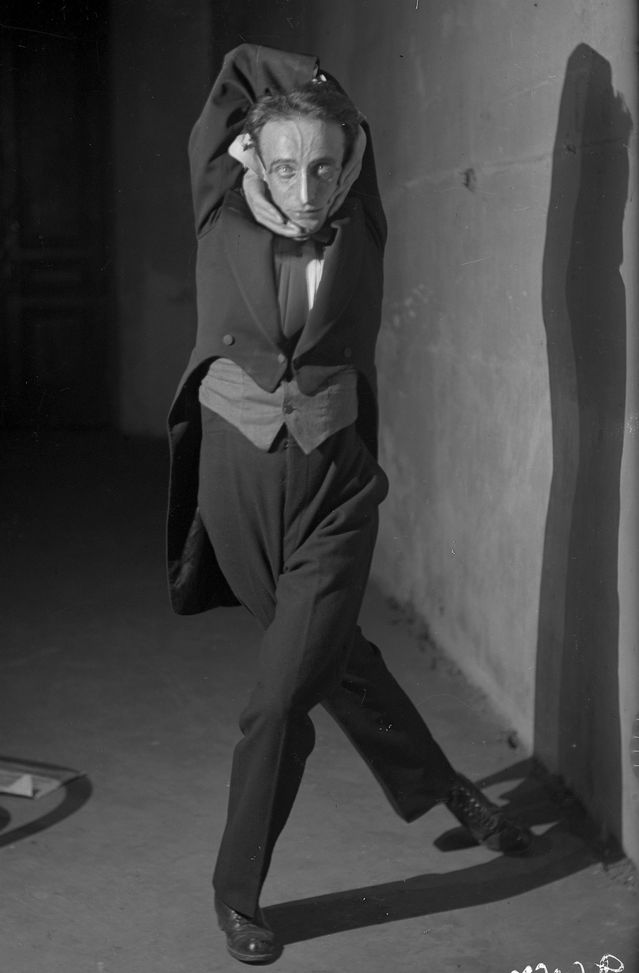When Russia Said ‘Da’ to Jazz
Propaganda at least partially explains the paradox. Initially, the state welcomed jazz, promoting it as the music of an oppressed people: black Americans. Nonetheless, under Stalin, jazz was variously suppressed, censored and embraced. To mark the anniversary, on Oct. 1 a celebratory concert will be performed at Moscow’s Bolshoi Theater.
The story begins just four years after the first jazz record was made in New York, when dancer-poet Valentin Parnakh heard a black American jazz band in Paris and was thunderstruck. He purchased a set of instruments, returned to Moscow and founded the Valentin Parnakh Jazz Band, which performed its first concert, in Moscow, on Oct. 1, 1922.
Interest in jazz spread, but by the late 1930s, the official newspaper Izvestia was pillorying the music as an example of bourgeois culture even as the state was supporting several dozen radio and military jazz bands. Once World War II erupted, the State Jazz Orchestra of the U.S.S.R was renamed the People’s Commissariat of Defense Exemplary Orchestra and sent to the front lines to rally Soviet troops. Unfortunately, most of the band perished there.
Eddie Rosner, a Jew who fled Hitler’s Germany for the Soviet Union in 1939, led the State Jazz Orchestra of the Byelorussian Soviet Socialist Republic from 1940-46, a big band that became one of the most popular in the U.S.S.R., touring and recording extensively. It thrived on American swing material such as Ellington’s “Caravan” and W.C. Handy’s “St. Louis Blues.”
But Rosner got caught up in the post-World War II Soviet crackdown on Western culture, when saxophones were all but banned and propaganda read “Today he plays jazz, tomorrow he’ll betray his country.” He was arrested and sent to the gulag. However, the leader of the camp liked his music and allowed him to establish a new band to entertain inmates and guards. He was released in 1954 and continued touring and recording almost to the end of his life.
After the war, composer Oleg Lundstrem and his big band, the Oleg Lundstrem Orchestra, were performing in the provincial city of Kazan, but when Moscow officials heard his arrangements of Russian and Tatar music, the band was granted the new status of the All-Russia Touring and Concert Authority’s Variety Orchestra, and from the 1970s on, it toured extensively to Europe and the US.
In his 2018 essay, “Russia: Ninety-Five Years in Search of an Identity,” Russian jazz historian Cyril Moshkow writes that there was very little jazz in the U.S.S.R. between 1947 and 1955 because the authorities indiscriminately suppressed everything Western. “Leonid Utyosov’s jazz band was forcibly renamed Russia’s ‘State Variety Music Orchestra,’” he writes, “and he had to hide the saxophones behind a newly-hired large strings section which was placed in front of the reeds.”
During the Cold War, the United States pursued “jazz diplomacy,” sending Benny Goodman to perform in 1962, Earl “Fatha” Hines in 1966, Ellington in 1971, and the Thad Jones/Mel Lewis Orchestra in 1972. Ellington’s band performed 22 concerts in five Soviet cities, reaching 126,000 people, to a tumultuous response from jazz-starved fans. One yelled “We’ve been waiting for you for centuries!”
American records were extremely difficult to obtain during the Cold War, but the U.S. sent jazz via shortwave radio on the Voice of America. The Soviet government tried to jam the signals but some got through, educating musicians and fans alike. In 1962, tapes of VOA jazz broadcasts sold for as much as $40 ($375 in 2022) on Moscow’s black market.
Once the Soviet Union dissolved in 1991, artistic freedom expanded, and jazz then had to survive in the market economy. Record releases and festivals declined sharply at first, but later rebounded. The biggest success in modern Russian jazz came to be saxophonist Igor Butman. Born in Leningrad, he studied at Boston’s Berklee College of Music in the late 1980s and became friends with Wynton Marsalis and other jazz luminaries. In 1996 he returned to Moscow, where he now helms his own ensemble, the Igor Butman Big Band, organizes “The Triumph of Jazz,” an annual festival held in multiple cities across Russia, and owns two nightclubs.
It is he who is organizing the anniversary celebrations. The Bolshoi concert will reconstruct the original 1922 program, while additional commemorative concerts will take place in 16 other cities across the country and 30 master classes will be held in 17 regions. In the world’s largest country by geographic area, all these attest to a healthy jazz scene replete with festivals, recordings, radio programs and an authoritative online magazine, Jazz.ru.
With Russia once again in the grip of authoritarian rule, there could not be a better time for its people to be exposed to jazz and its lessons.
Mr. Hasse is curator emeritus of American music at the Smithsonian’s National Museum of American History. His books include “Beyond Category: The Life and Genius of Duke Ellington” (Da Capo) and “Discover Jazz” (Pearson).



Comments
Post a Comment